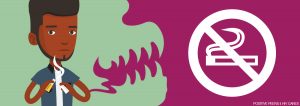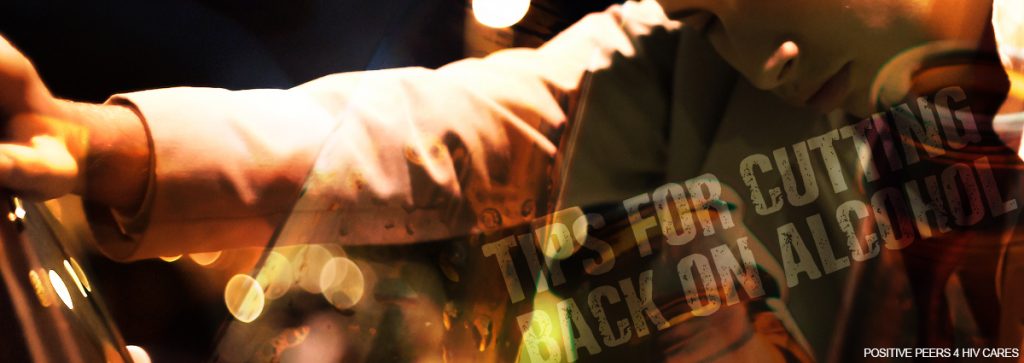
By: Jennifer McMillen Smith, LISW-S, HIV Social Worker at MetroHealth Medical Center and medically reviewed by Ann K. Avery, MD, Infectious Disease Physician at MetroHealth Medical Center
We get it: A stiff drink takes the edge off and makes it easier to deal with all the crazy in your life. Four or five glasses of wine ramps up the fun factor at a party or a night at the club.
But when you wake up the next morning feeling like you’ve been run over by a bus, that’s your body trying to fight off the toxins that alcohol leaves behind. With alcohol, less is more.
Before we talk about how to drink less alcohol, let’s look at some of the problems of alcohol consumption
- Empty calories. Beer, wine, and hard liquor are heavy on calories and light on nutrients like vitamins and minerals. If you’re watching your weight, drinking less alcohol is one of the easiest things you can do to cut calories.
- Liver damage. Your liver processes all your HIV medications. Alcohol consumption damages the liver over the long term. Drinking too much makes it harder for your liver to get its work done — including processing your HIV meds.
- Poor judgment. Drinking too much can make you forget to take your HIV meds. Every time you miss your daily dosage of anti-retrovirals, you raise the risk of getting infected with a drug-resistant strain of HIV.
How much alcohol is too much? Somewhere between one and two drinks a day, according to the experts. The truth is, it’s not the same for everybody. But the scientists agree that we’re all better off drinking less alcohol.
So if you’re ready to cut back on alcohol, we have a few helpful tips.
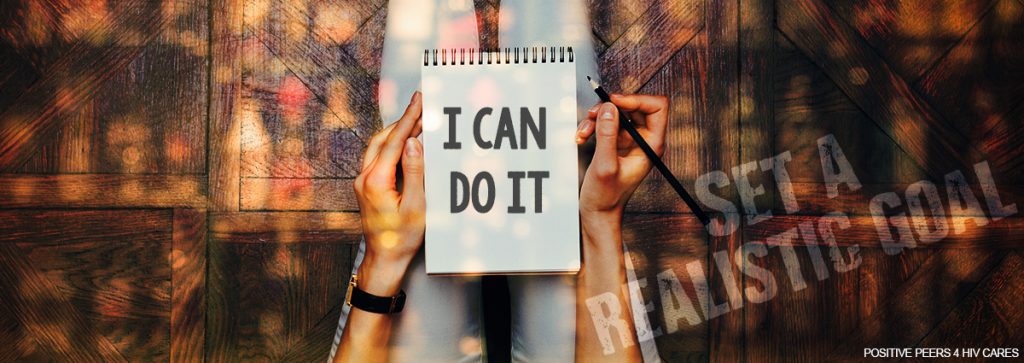
Set a realistic goal
Before you cut back on alcohol, start keeping a journal recording how many drinks you have every day. Keep your journal for a few weeks and count everything up.
That gives you a number to work from. If you take 12 drinks a week, you can set a goal of subtracting one drink per week for the next month. Then subtract another drink every week for the next six months.
This is just an example; you can do it in any way that works for you. The point is, goals make your efforts real — when you achieve goals, you prove you can change your life for the better. That’ll help in every part of your life.
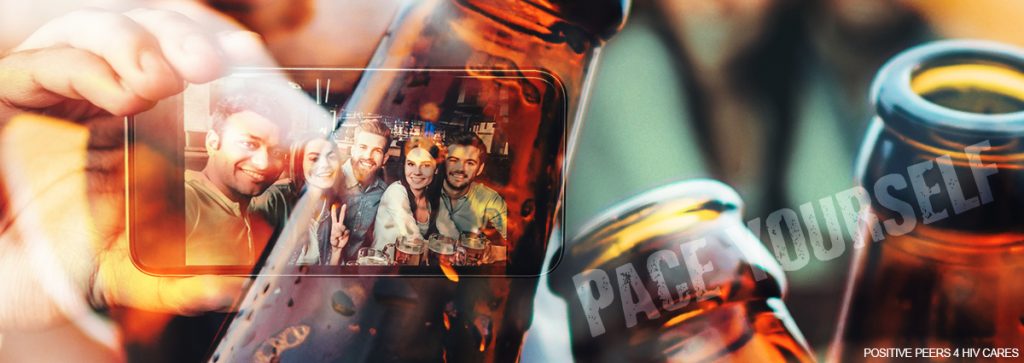
Pace yourself
Maybe you’ve tried to keep a journal in the past and it just didn’t work out. That’s cool. You just need a different strategy. For instance, you can concentrate on pacing yourself — cutting back to one drink an hour if you’re at a party or club, for instance.
Instead of drinking two beers one after another, drink a glass of water between beers. Whatever you do, avoid the temptation to drink a lot in a short time span. Drinking quickly raises your risk of alcohol addiction. And addiction makes it all but impossible to stop drinking.
Focus on low-alcohol drinks, and wait until dinner is served to have your first drink. Drink plenty of water with dinner — feeling full can decrease your thirst for alcohol.
Come join our private, stigma-free, supportive community.
Health management tools with medication & appointment reminders.
Social networking in a community conversation & private chats.
Avoid triggers that lead you to drink more
Let’s say you always wake up hungover from a night at the club. It’s possible the whole club environment — dancing, pounding music, romance — is triggering you to drink too much.
How about this: Instead of going to the club Friday and Saturday nights, you do something else one of those nights. Visit an older relative who gets lonesome on the weekends. Have a game night or try an outdoor activity.
People and activities can be triggers. Then again, so can being alone. (Drinking alone is considered a classic symptom of alcoholism, incidentally.) It’s a good idea to avoid keeping alcohol in your home.
Avoiding these and other triggers can help you cut back.
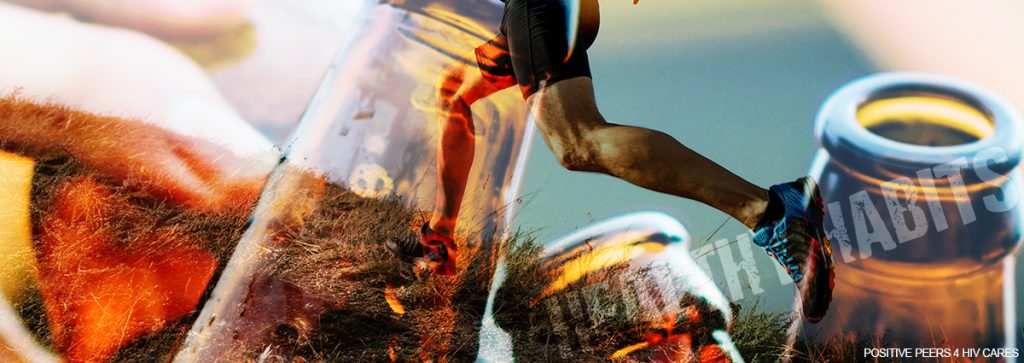
Develop healthier habits
A lot of drinking happens without really thinking about it. It’s more habit than anything else. Thus, creating healthier habits can help reduce the urge to drink.
When you start seeing the upside of healthier habits, it’s easier to see the downside of drinking too much.
For instance: Alcohol can soak up a big chunk of your budget. If you stop buying three bottles of wine a week, you can start putting that money toward a more productive purpose. You could join a gym or a social activity club, or start saving up for college. You could donate more to people who need help.
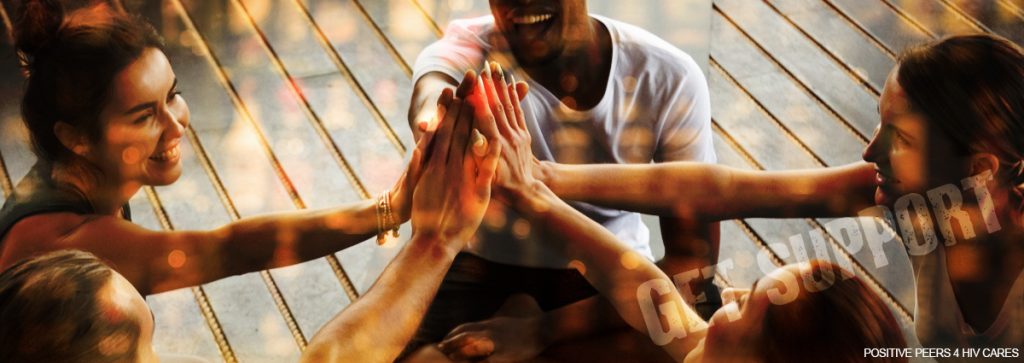
Get some support
You don’t have to join Alcoholics Anonymous to cut back on drinking. You can talk to the people in your HIV support group, or just set time aside to talk things over with friends, family, and coworkers.
At the very least, you’ll need help adjusting to the peer pressure from people who drink. People mean you no harm when they encourage you to live it up and have some drinks. They genuinely want more people having a good time.
The trouble is that too much social drinking does too much damage to your health over the long term.
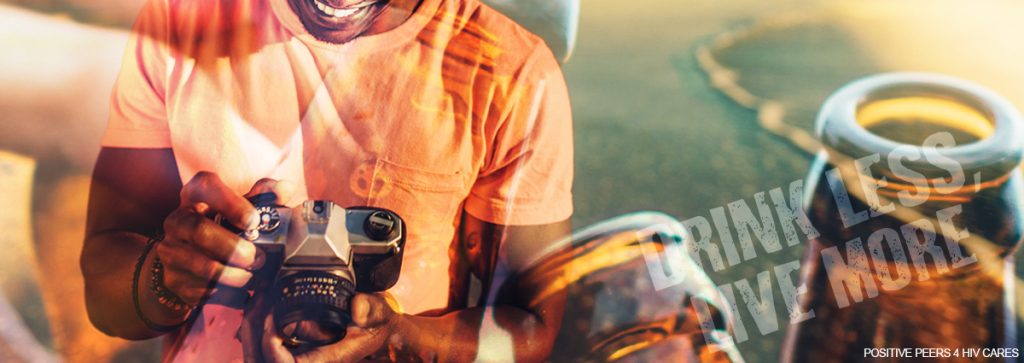
Drink less, live more
Alcohol tempts you to drink your cares away. But they always come back the next day — with a splitting headache as a bonus prize.
We know how hard it is to resist the urge to follow the first drink with a second, third, fourth and so on. Dialing back your drinking habits is like getting more exercise: You do something difficult to make yourself stronger.
Related Blogs:


